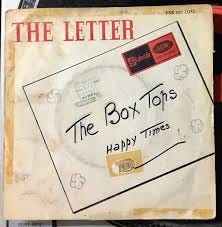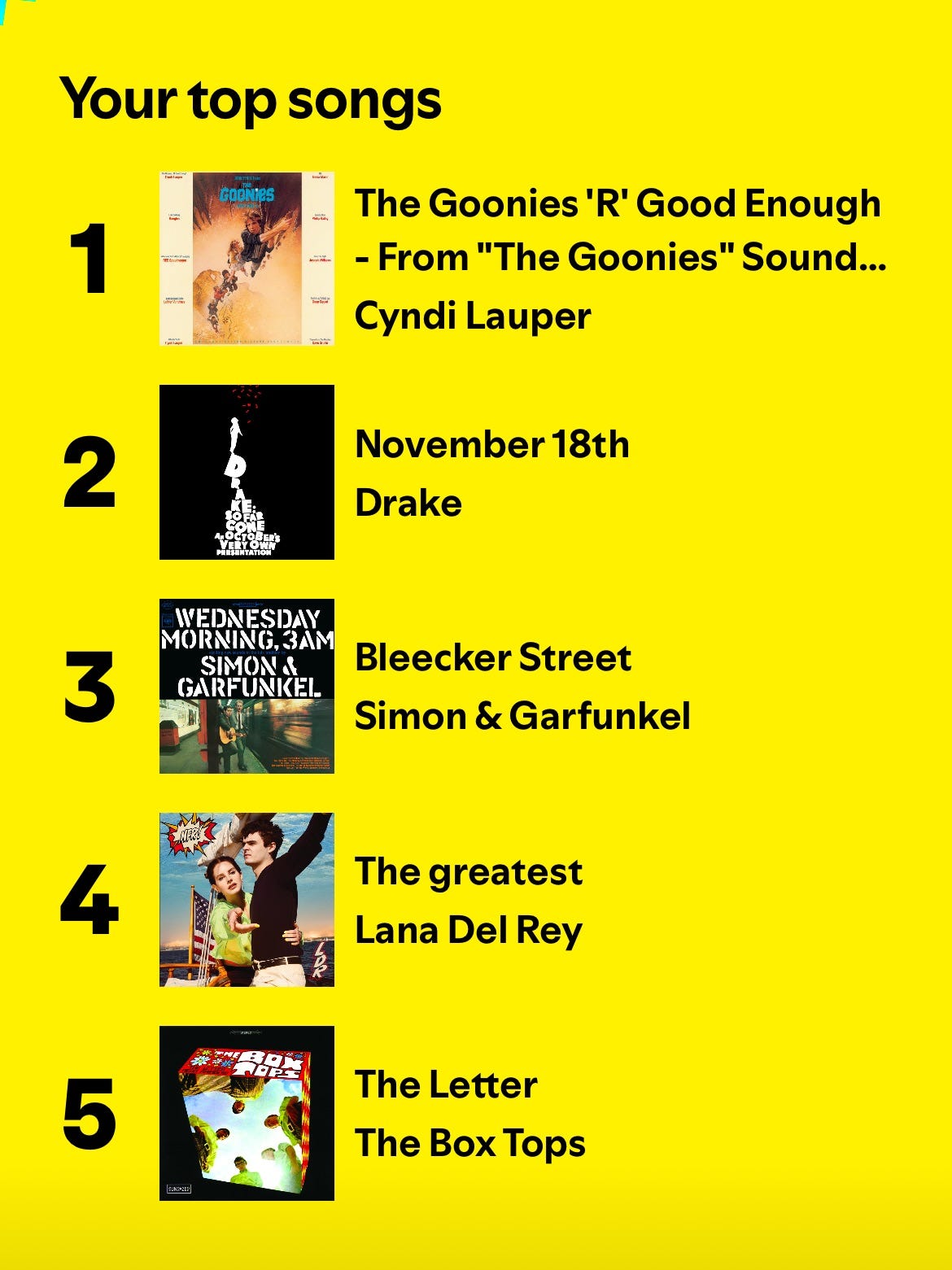The Distance Between a Catcall and a Love Letter
From Pretty Woman to The Letter: A Tale of Two Sixties
Good Listening: The Letter
As I shared in my previous post, taste is the amalgam of that which you like and that which you don’t. Greatness, while entirely in the eye (or ear) of the beholder, is often determined when we consider two pieces of art and cast one aside while elevating the other to our annual Spotify most played list.
Roy Orbison’s Oh, Pretty Woman and the Box Tops’ The Letter both immortalize a man’s hunger for a woman, his overwhelming desire and the prowess of that allure. Both songs spent four weeks at the top of the Billboard Hot 100 charts and, curiously, begin with variations of the same drum and guitar lick.
It got me thinking—maybe every rock song from 1964-1967 started the same way? But that can’t be the case. Maybe it’s something more deliberate? Is The Letter in conversation with Orbison, winking at his popular but kitschy single?
For example, Oasis’ mid-nineties anthem Don’t Look Back in Anger self-consciously apes John Lennon’s opening piano riff from Imagine. Noel Gallagher left no doubt about his intentions, or about his band’s idolization of the predecessors who changed everything in the short window between the release of Oh, Pretty Woman in 1964 and The Letter in 1967.
I suspect the uncanny resonance betwixt the opening of Oh, Pretty Woman and The Letter is merely coincidental. Yet I find a remarkable contrast between Orbison’s poppy, upbeat cat call and the Box Tops’ more soulful longing for a reunion with a preexisting lover.
Aside from the British invasion, what happened in American culture between 1964 and 1967?
The Letter’s top comment on Youtube, from a user named @138eliza1: “My dad who was in Vietnam said this song helped him through that horrific time. He came home but was never the same. I’m happy he had something like this song to come home. Too bad he couldn’t find the peace he was looking for. He was too young gone at 51. To all the veterans thank you. 🙏”
Plenty of rock music made prior to the US role in Vietnam falling completely off the rails was chock full of spirit and soul. And much music crafted since then has been shlock. But the tonal evolution between these two hits feels emblematic of the darkening, deepening national mood over those short but tumultuous three years.
Of course, I wasn’t there to witness it firsthand. I’m only superimposing the feelings I have for these songs onto the entirely manufactured narrative of the 60s I acquired growing up in the middle class, midwestern 80s and 90s. I may simply possess a deep-seated disposition to dismiss Oh, Pretty Woman as cheap pop because Touchstone Pictures and Walt Disney Studios reinserted it firmly into the cultural zeitgeist with the 1990 release of a smash hit film by the same name.
Oh, Pretty Woman was inescapable. I remember kids in elementary school parodying during recess: ”Pretty Woman, walkin’ down the street. Pretty woman, I wanna smell your feet.”
I didn’t know the actual lyrics back then, but I knew those definitely weren’t it. This kind of Mad Magazine mockery was coarse, childish, and uncreative. Even as a child, evidently, I was a little bit of a snob in my visceral distaste for this kind of gauche but ultimately harmless parody. Had the song they were riffing on stood on its own merit, I think this would have only resulted in a mark against my classmates’ poor taste. But this derivative playback reflected how impoverished the original source material was itself. I can’t recall ever liking or respecting that song.
Whereas it feels like Oh, Pretty Woman has blasted my nonconsenting ears a million times, I don’t really remember hearing much of The Letter. But I knew I had heard it somewhere before, as with so many recent rediscoveries, when the song came on over the radio at work. At first I couldn’t pinpoint The Letter, so I went home and listened to it on my own a few times, which is when I discovered its uncanny similarity to Orbison’s lusty ballad.
The Letter is a perfect song. Short, sweet, aching. Catchy enough to command regular play but incapable of wearing out its welcome. In 1964, Oh, Pretty Woman must have sounded pretty great to a wide audience. Yet even if it hadn’t undergone an early 90s overresurgence, I submit the classic has not aged well. But The Letter is timeless.







Well, maybe you should talk to people who lived through the period of “Oh,Pretty Woman” and “The Letter”. As one who did, and bought/loved them both, it was musically an exhilarating time, wildly creative and passionate. Reading that you hear the Orbison tune as a “catcall” doesn’t bother me b/c we were able to love either or both -or neither.
I think I’d choose a different beginning and end time than you did, but the era we call “the 60s” was about freedom of choice, of expression, and we chose from a lavish smorgasbord.
That energy will come again. If the detonator was a combo of disaster, fear, love and pain, we are close to another creative explosion. Overdue, even.
I find the music of that era soothing, poignant lately. From the Beatles and Rolling Stones, to Dylan, to Jefferson Airplane - too many to list. There was folk music, there was James Brown. Most of all, there was the war. Lately, I hear, in my head, Buffalo Springfield singing “Something’s happening here…” and feel cold inside - because the threat is even worse now.
Orbison’s “Crying” actually hit in the early 60s. It was a rolling changeover culturally and actually, an intense air of uncertainty coming down the pike. Like today.
Having a love song show up is a good thing. But you can call it a catcall if you please. Just look deeper and feel the vibes around you.
Alex Chilton from the Box Tops continued making great music with Big Star.